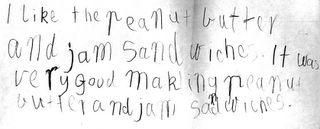This conference looks very interesting and I will put in an abstract for it. I haven't written any papers yet from the analysis chapters in my thesis.This conference will provide the right opportunity for "doing" a CA paper since my study involved comparisons between interaction during whole class instruction and interaction during individual student activity.
CALL FOR PAPERS
International Conference on Conversation Analysis (ICCA-06)
May 10?14, 2006 Helsinki
Abstract deadline: September 2, 2005
***********************************
The theme of the conference is
Comparative Perspectives in Conversation Analysis
In recent years, conversation analytic research has increasingly
focussed on comparison between different kinds of data. Comparative research can involve e.g. comparison of interactional practices in everyday versus institutional talk, in different kinds of institutional encounters, different languages and cultures, different varieties of a language etc. Conversation analytic papers on other themes are also welcome.
The following types of proposals are invited:
* single paper
* poster
* panel session
* workshop
****************************
Plenary speakers:
Elizabeth Couper-Kuhlen
Paul Drew
Charles Goodwin & Marjorie Harness Goodwin
Auli Hakulinen & Marja-Leena Sorjonen
Scientific committee:
Anssi Perakyla (chair)
Maria Egbert (DK)
Makoto Hayashi (US)
John Heritage (US)
Anna Lindstrom (SE)
Harrie Mazeland (NL)
Lorenza Mondada (F)
Arja Piirainen-Marsh (FI)
Jakob Steensig (DK)
Tony Wootton (UK)
*****************************
For more information about the conference
and submission of abstracts, please visit the conference web site:
http://www.helsinki.fi/hum/skl/icca/




